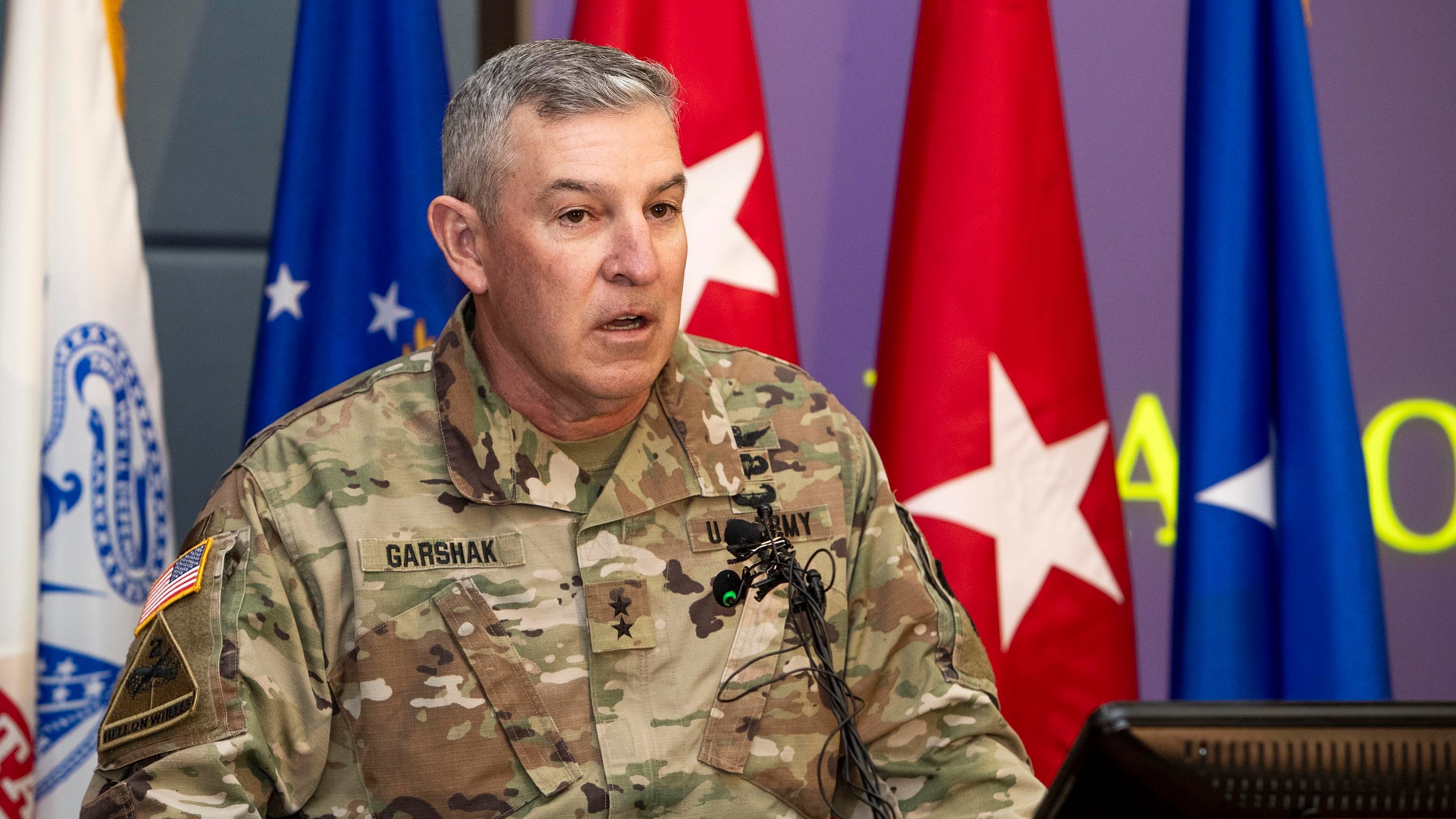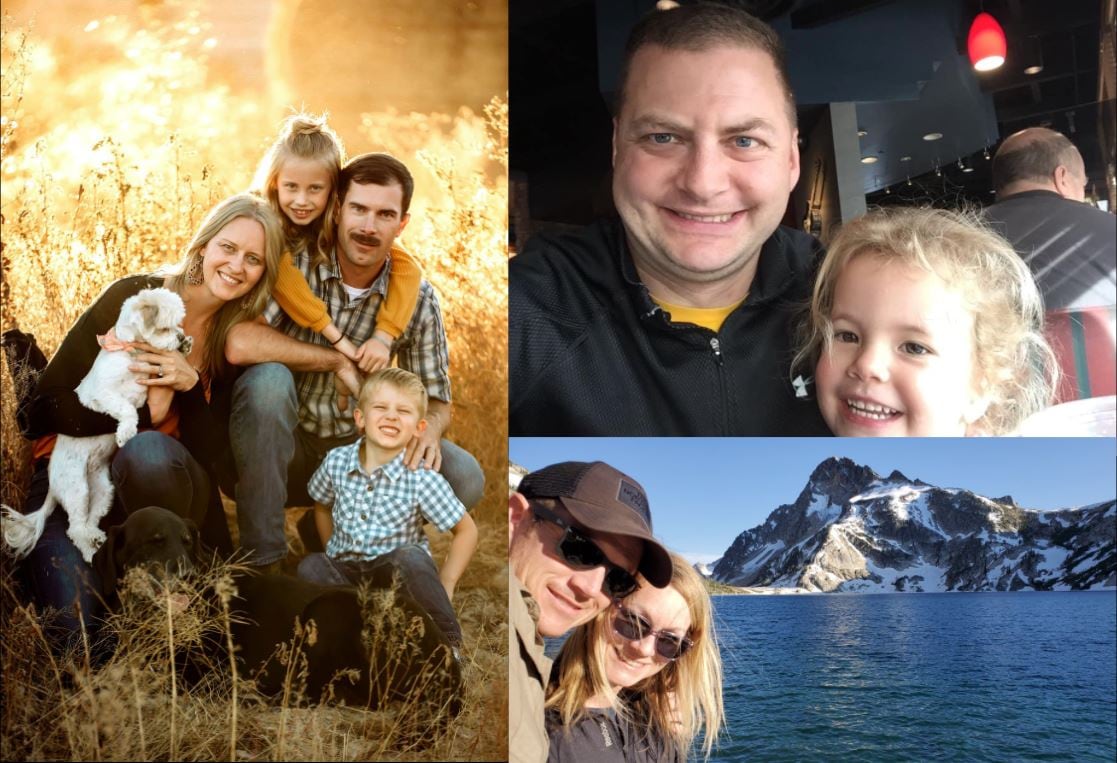All three Army National Guardsmen killed in a helicopter crash Tuesday night over mountainous Idaho terrain were fathers, and two were instructor pilots.
The crew’s UH-60 Black Hawk crashed south of Lucky Peak near Boise when it was supposed to be returning from training. The weather was poor that night, with snow and fog obscuring aerial search efforts, but Guard officials said the reason for the mishap remains under investigation.
Chief Warrant Officer 4 Jesse Anderson, 43, was a Boise resident and the highest ranking of the three men. Anderson was a senior instructor pilot who had served in the Guard since 2008. He is survived by his wife and four children.
Chief Warrant Officer 3 George “Geoff” Laubhan, 39, also a Boise resident, was an instructor pilot who joined the Guard in 2010. He is survived by his wife and two children.
Chief Warrant Officer 3 Matthew Peltzer, 43, who lived west of Boise in Nampa, was a pilot who had served in the Guard since 2005. He is survived by his wife and two children.
The crash hits at the heart of a Guard unit with tight bonds, said Lt. Col. Nicole Washington, who leads Idaho’s 1st Battalion, 183rd Aviation Regiment.
“I did know them personally, not only as their commander, but through deployments as well,” Washington said during a press conference. “It leaves a tremendous, indescribable void in our aviation community. We are very close-knit. We don’t have fixed assigned crews, which means each person flies with so many different pilots.”
The Idaho Army National Guard’s state aviation officer, Col. Christopher Burt, detailed what officials know about the incident so far during the same press conference.
The Black Hawk crew took off from Gowen Field in Boise after 6 p.m. and made their last contact at 7:45 p.m. They had finished training and were supposed to be returning to base, Burt said. No distress calls had been made.
About 20 minutes later, an emergency transmitter aboard the helicopter was activated and its signal was picked up by Air Force personnel in Florida, who in turn alerted the Idaho Guard, Burt added.

At the time of the mishap, the crew was on a routine nighttime flight, which take place three times per week in their unit, according to Washington.
The terrain the crew was flying in is mountainous and “fairly high,” Washington said. But the area is also a common training ground that pilots refer to as “Three Points” near Lucky Peak State Park, she added.
“We do know from the aircraft that tried to locate them — that was out at the same time — they tried three different times to do low passes to get to that area, but the fog, the ceiling layer coming down, combined with snow, made it untenable,” said Washington. “So, no speculation on what caused the accident, but we do know there was bad weather.”
Even with their night vision goggles, illumination was “pretty low,” she added.
The crash site was finally located just after midnight Wednesday, and recovery operations continued throughout the following day.
“The sudden and tragic loss of three of our fellow guardsmen is extremely heartbreaking,” Idaho Adjutant General Maj. Gen. Michael Garshak said in a statement. “I have received numerous messages of condolence from many people here in Idaho and throughout the nation, and all of your thoughts, prayers and support are sincerely appreciated and much needed.”
Army investigators from Fort Rucker, Alabama, were dispatched to determine the cause of the crash and are expected to arrive Thursday afternoon.
It’s unknown whether the cause of the crash was related to the poor weather, mechanical failure or something else, but Washington said that the Idaho Guard has halted flight operations in the wake of the crash.
The Idaho Guard did not immediately return a request for the three pilots’ service histories, to include deployments and awards.
The losses in Idaho are not the first suffered by a National Guard aviation unit this year.
In January, a Black Hawk belonging to the New York National Guard crashed in a farmer’s field south of Rochester, killing three experienced pilots with past deployments to Afghanistan.
That mishap also remains under investigation by another Army Safety Investigation team. Mishap investigations can take months to finalize their findings and even longer before they’re made public.
Kyle Rempfer was an editor and reporter who has covered combat operations, criminal cases, foreign military assistance and training accidents. Before entering journalism, Kyle served in U.S. Air Force Special Tactics and deployed in 2014 to Paktika Province, Afghanistan, and Baghdad, Iraq.





